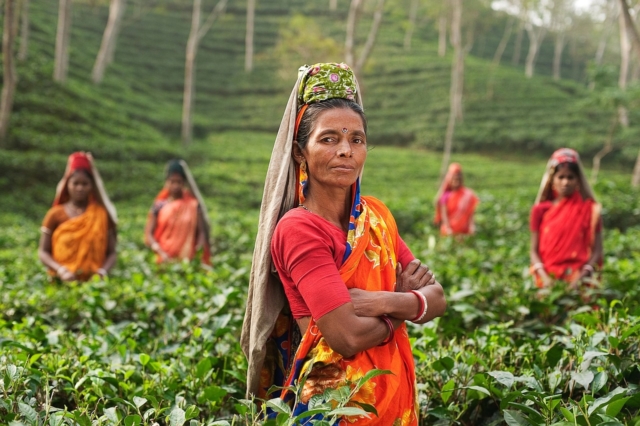Empowering Tea Farmers in India During COVID-19
 While many brew tea unaware of the extensive work that goes into a cup, more than two million people in India dedicate their lives to the tea industry. Many tea farmers live in impoverished circumstances with limited access to healthcare, education and nutrition. UNICEF and the Ethical Tea Partnership (ETP) have teamed up to empower tea farmers in India despite setbacks caused by COVID-19.
While many brew tea unaware of the extensive work that goes into a cup, more than two million people in India dedicate their lives to the tea industry. Many tea farmers live in impoverished circumstances with limited access to healthcare, education and nutrition. UNICEF and the Ethical Tea Partnership (ETP) have teamed up to empower tea farmers in India despite setbacks caused by COVID-19.
Poor Quality of Life on India’s Tea Farms
Assam, located in Northeastern India, is responsible for most of India’s tea production, boasting around 800 tea estates. The inhabitants of these estates, mostly women and children, make up 20% of the region’s population and face several systemic issues. Furthermore, nearly one-third of Assam’s population lives in poverty. Children face even more risks, with 43% of girls marrying before age 18 and a little more than half of the youth enrolled in secondary school.
Improving Living Conditions on Tea Farms
With the help of UNICEF, the Ethical Tea Partnership, a nonprofit aiming to improve both quality of life in tea communities and tea sustainability, implemented the Improving Lives Program in 2014. The program works to improve health, hygiene, education and overall quality of life on 205 tea estates in Assam, India. For example, the program has funded and created Girls and Boys Groups and Child Protection Committees to combat child exploitation and has also built sanitation facilities.
In the first five years that UNICEF and ETP worked together, the organizations provided 35,000 girls in Assam with tools and education to prevent abuse and exploitation. The program has also trained more than 1,000 social workers and police to better facilitate trust between agencies and locals in regard to child protection.
In 2018, the Improving Lives Program expanded to cover education, sanitation, food, water, child care and overall health in a quarter of the region’s tea estates, making it the largest program in Assam working to better living conditions.
COVID-19 Challenges
Like the rest of the world, the Improving Lives Program had to adapt amid COVID-19. The ETP complied with local lockdown restrictions while also ensuring the well-being of everyone involved. The Indian government provided free COVID-19 testing sites, quarantine centers and treatment facilities. Meanwhile, UNICEF and ETP worked to fight COVID-19 by providing almost 5,000 portable handwashing stations across the 205 tea estates.
While most of the globe implemented online learning, limited access to technology made this impossible for many children on Assam’s tea estates. Instead, the Improving Lives Program gave “take-home learning materials” to about 20,000 children. Those who lacked access to smartphones used TV, local radio and the knowledge and utilities of their neighbors, making education a community effort.
New Mental Health Services
With new COVID-19 protocols in place, the Improving Lives Program can continue to fight for better conditions on India’s tea farms. A positive result of its pandemic-era adaptations is a new mental health support network. The program has trained 3,375 child protection officers thus far to provide psychological and social support to local children, offering relief from immediate mental health struggles as well as better opportunities for the future.
The ETP explains that through partnership, the organization is “one crucial step closer to realizing the ambition that children, young people and women living in tea estates in Assam can survive, thrive and fulfill their full potential.”
– Caroline Bersch
Photo: Pixabay
